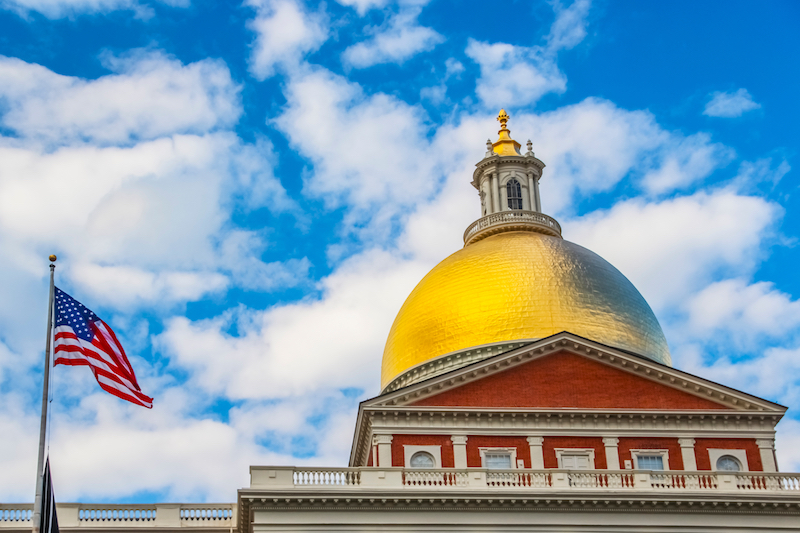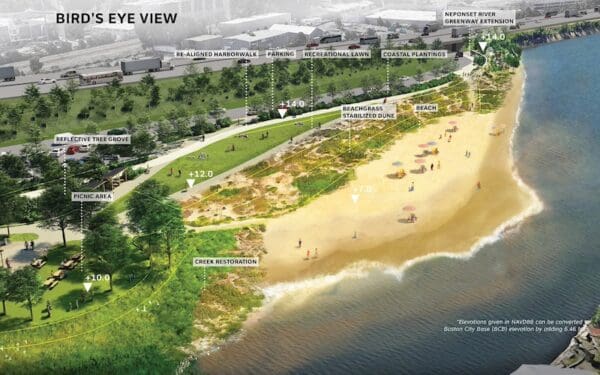
The Massachusetts legislature is considering two bills that would provide tools for impacted communities to challenge discrimination in our state. Photo: Shutterstock
The Trump administration will seize any opportunity to roll back civil rights. One of the latest attacks dismantles protections against discrimination that have long been a cornerstone of the Fair Housing Act. Allowing discriminatory housing practices to occur harms neighborhood health and well-being in communities of color and immigrant and refugee communities for generations.
CLF and our allies are fighting back against this federal attack on housing policy because we believe that healthy environments encompass all the places where we live, work, play, learn, and worship. But we’re not stopping there. Right now, the Massachusetts legislature is considering two bills that would provide tools for impacted communities to challenge discrimination in our state. In the face of federal rollbacks, now is the time for the Commonwealth to step up as a civil rights leader.
Disparate Impact: A Tool to Fight Discrimination
We all have a right to breathe fresh air, drink clean water, and put down roots in a healthy community. But these basic rights aren’t the reality for everyone in New England. Our country’s history of housing segregation means that communities of color and immigrant and refugee communities are most likely to contend with groundwater contaminated by a landfill, breathe air polluted by highway traffic, or wait for a bus that never comes. The fight for environmental justice counteracts decades of systemic injustice that persists to this day.
These injustices often play out through policies and decisions that may not seem discriminatory on the surface, but their impacts harm historically marginalized and underserved communities. They happen when decisions are made to site a toxic ash landfill, carve a highway through a neighborhood, or redirect a bus to serve a whiter, wealthier community. This is called “disparate impact discrimination,” and it often forms the basis of environmental justice cases.
The Trump administration’s rollback is the latest move to weaken the disparate impact rule under the Fair Housing Act. This rule currently provides a path for people and communities to bring civil rights cases when injustices occur that preserve housing segregation. The new regulations will make the path to justice —including environmental justice — incredibly difficult. At a moment when the climate crisis is escalating, we need more protections for those most at risk, not fewer.
Climate Change is Already Hurting Some More Than Others
The unequal impacts of climate change aren’t in the distant future. They’re happening here in Massachusetts, and they’re happening now. And they are directly linked to the history of housing discrimination. Segregated housing created conditions that put communities of color and immigrant and refugee communities most at risk from the immediate threats and long-term impacts of climate change. And when extreme weather events amplified by climate change hit, these communities have significantly fewer resources needed to recover.
CLF’s neighbors in Chinatown are just one example of how this plays out. Two highways run through the neighborhood, and today, its residents breathe the highest levels of toxic tailpipe pollution in the state. This exhaust has been linked to several health problems, including asthma, emphysema, lung cancer, and heart disease. The effects on poor air quality will only get worse with a warming climate.
Climate change will amplify these and other risks – both in the near- and long-term – unless we take deliberate action to both dismantle historical injustices and guarantee protections for our most vulnerable communities going forward. That’s why we’re advocating for statewide legislation along with a coalition of other environmental justice and allied organizations that recognize environmental justice as a civil rights issue.
State-wide Legislation Would Ensure Protections Remain
At the state level, we can create stronger protections for Massachusetts residents. Bills S.915/H.3374, An Act to Restore Enforcement of Civil Rights, and H. 1512, An Act to Eliminate Disparate Impact, would codify that the government cannot discriminate against people based on a wide range of protections, including race, gender identity, and religion. We are hoping to expand these protections to include sexual orientation and gender identity as well.
Communities of color and refugee and immigrant communities need these legal safeguards to ensure that policies to address the intense heat, dangerous flooding, and extreme weather events of climate change do not discriminate.
Both sets of bills explicitly make programs or methods that have the effect of excluding people illegal. These bills provide individuals and organizations with the tools to go to court and fight for the health and safety of their families and communities.
The bills are currently with the Judiciary Committee. In light of the federal rollbacks, we need to get these bills moved out of committee and to a positive vote by the entire legislature as soon as possible.
Call your Senator and Representative today and urge them to support S.915/H.3374, An Act to Restore Enforcement of Civil Rights, and H. 1512, An Act to Eliminate Disparate Impact.



